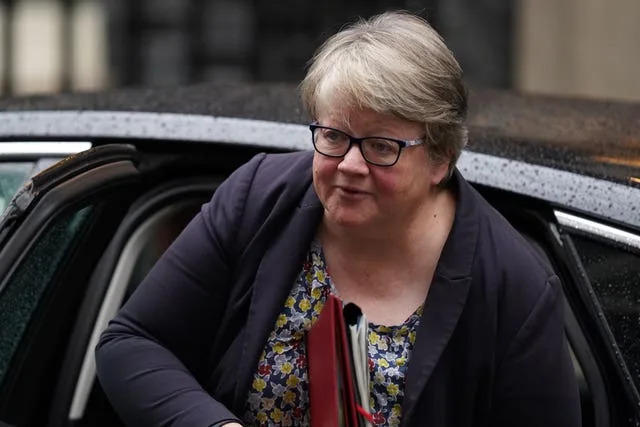Converting To Christianity, Islam: Does It Prove Anything? – Book Review

"From fire by water: My journey to the Catholic faith," by Iranian American Sohrab Ahmar
By Eric Walberg
Religious conversions later in life are generally greeted as evidence that something terrible must have happened to the converter. The Onion published a satire in 2016, ridiculing Paul D’Amatol, who took up a life of Christian piety in late middle age. It must be ‘drugs or maybe he killed someone in a car accident. Something super messed up.’
No room in satire for something good as the cause. Interestingly, it’s not Protestant evangelical born-again-ism but the Catholic bells-and-smells and Islamic mysticism that attract those interested in spiritual growth as they approach the end, despite (because of?) Rome’s/ Islam’s hard teachings on divorce, homosexuality, the ordination of women. Catholics and Muslims take their religion seriously.
From fire by water: My journey to the Catholic faith, a memoir by Iranian American Sohrab Ahmari, is provocative, to say the least.
Such conversions are rare and never casually broadcast. Muslims do not look kindly on such apostates. You can interpret that as you like, but I figure it is a good indication that they take their beliefs seriously, something that we can’t say about most of the Christianities or Judaisms on offer. Yes, schisms abound; even the monolithic Catholic church struggles to keep the faith in this truly godless age of ‘anything goes’.
But good for Ahmari. His own life has been charmed, from a bohemian childhood in post-revolutionary Iran to Wall Street Journal London correspondent and still in his mid-30s. He remembers his grandparents being pro-revolution, as Iranians generally are bitter about foreign meddling, with good reason. But many of the urban, educated young look to the West. The taste of western living under the Shah, the open culture, comedy, the arts, racey theatre, the high life – all suddenly gone. His uncle went to the US right away. Ahmari and his mother emigrated in 1993.
His religious training in Tehran was actually stimulating and entertaining. His first instructor was clearly from the wild tribal lands, hair disheveled, shirt half tucked in, a rube from the hicks thrust into downtown Tehran. His acting out of the Battle of Karbala transfixed little Ahmed. He learned that Hussein stuck by his friend unto death. Stood for the Truth.
He lived what is probably a typical 1990s childhood in the urban upper middle class – pirate Hollywood films, Shah-era soap operas, Twain, Salinger, whatever foreign. He finally cursed God for his frustrations, his dysfunctional home, the unjustice ways of adults, though he realized if there is no god, then there is no one to address. And called himself atheist.
Morality police
He recounts a trip to the Caspian second house of friends, a long standing Iranian tradition of group parties at large vacation homes. Booze in hot water bottles. The low grade fear of a swoop by the morality cops. Much of the conversation during the party weekend is about incidents evading, sweet talking, bribing them.
Once, when he was 13, this happened at noon. Cop to party host: ‘Aren’t you ashamed? Not even noon prayer time and you stink of gin.’ Turning to Ahmed, ‘How old are you?’ ‘5,’ he mumbled. He still can’t explain what was going through his mind, maybe if he was younger they wouldn’t be so severe?
Well, that broke everyone up. Even the chief cop couldn’t stop chuckling, and said: ‘I guess you’re just out having some fun. So let’s taste your sweets.’ The guests hurried rounded up their cash and gave it to him.
The whole scene is ridiculous. You can interpret as you like. The ‘victims’ were in fact sinning, realized it, and managed to get out of the scrape with punishment. Yes, such morality police are not pretty, but is our lack morality police, lack of any such control over our sins, really better? To Ahmari’s credit, he depicts the police more as keystone cops and the adults as children scolded for being naughty.
Life really would be better without the constant need to get plastered to enjoy yourself. In rape and car deaths alone. Egypt has a workable model. Only Copt Christians can sell wine and spirits, and there are a few miserable holes-in-the wall on a back street to buy a red or white local wine and ouzo. i.e., discourage it. Do NOT promote it. It’s a social evil. The incidence of alcoholism is minuscule in Egypt.
So I sympathize with any government trying to follow that sensible morality. The Taliban have wiped out drug addiction and poppy growing. No help from the West, just sanctions and loud whining about western values. It is easy to be an armchair critic of Islamic states for their harsh justice, but all evidence points to the US invasion of Afghanistan as the cause of soaring opium production, and the US absence and Taliban policy was the way to stop it. If we bothered to listen, the Taliban would explain that in Islam human life is sacred, and allowing people to defile themselves as addicts is haram.
America, Nietzsche, Marx, Kerouac
A budding atheist at this point and in love with America, Ahmari finally gets to Utah, only to find himself and his mother in a seedy trailer park with an old truck that barely functioned. From well off in Tehran to dirt poor in Mormon land, which was just as oppressive to him as living under the mullahs. ‘At least the mullahs let you have a-tea-and-a-cigarette in peace.’
Conversation at his uncle’s was as specious and boring as non-Iranian Americans, about new cars, classic cars, trucks. ‘This wheels-and-gears babble I found so tedious as to make me long for the weather talk. For all the miseries of the Islamic Republic, there at least people had something to say.’ He joined the nihilist teen crowd but didn’t have sex as the local teens were doing.
He later read the Egyptian Muslim Brother Sayyid Qutb’s reflections on his stay in the US in 1949, expressing horror at the sexually charged atmosphere he saw everywhere. Qutb reacted by becoming a Muslim radical, reacting to Nasser’s secular socialism. Ahrami was reacting to Islamic fundamentalist Iran, so ‘I took my discomfort at physical contact with strange women to be a shortcoming–on my part. I was insufficiently modern and rational in my habits and ways.’
Discovering Nietzsche’s Thus spoke Zarathustra was a turning point for him, ironically beginning his path to Catholicism. God is dead, biblical morality reflects the will to power of slave-like men, invented for and by people who envied the strong and virile, proscribes strength and virility. The superman is beyond good and evil. Values may be relative but the superman’s actions are by definition better. And the herd, the ‘last men’, live a sterile, gray happiness.
That explained for Ahmari what he saw first in Utah, then Washington State. He joined the local Trotskyist group. For Ahmari, again ironically, Marxism’s greatest attraction was its fanatics, its religious spirit, which he later dismissed as ‘secularized theologies’. The two great critiques of religion, Neitzsche and Marx, were Ahmari’s path to enlightenment.
He had one more detour, postmodernism and identity politics. Marx claimed to reveal the truth about capitalism, but post-Marxists like Foucault,* reframed civilization as a repressive apparatus designed to discipline and control human difference, whether sexual, racial or cognitive. Even empirical science amounted to a sort of performative ‘language game’ that served the needs of power. We ‘perform’ gender in response to societal expectations (Butler). Politics is no longer to seize the means of economic production but to resist racist and sexist hegemony, starting with language.
All this materialism denied the existence of human nature. The individual is a victim of impersonal forces, be they language, economics or history, so not responsible for his actions. i.e., a license to sin.
He dabbled in the Beats, Kerouac, Burroughs, fascinated as much by their dissolute lives as their prose and verse. Debauchery as an authentic style. Which he aped with his own. And increasingly disgusted himself. He dropped the Trotskyist politics, as it was the much like the petty intriguing of mullahs in Iran. Just different hats.
Virtue over intersectionality
His radical studies pushed him into a stint of social injustice, teaching disadvantaged Americans for four years with Teach for America. His best friend was Yossi, an Israeli American whom he admired for his strict discipline with the undisciplined underachievers, who loved this squeaky dynamo precisely for bringing them to order, and for his genuine enthusiasm, making him the outstanding teacher with by far the best results in English. A virtuous teacher. A novelty in inner city Brownsville, on the Mexican border.
Ahmari had turned into a Don Juan and binge drinker by then, his Iranian modesty discarded. He was slowly realizing the lefty emphasis on ‘intersectionality’, the hidden ‘structures of oppression’ race, gender and sexuality, the need for more money, vs good old-fashion discipline, honesty, and excellent teaching, was wrong. Throwing more money, new technology at a broken system will not improve things. The whole left agenda is a recipe for disaster. ‘The friendship with Yossi proved to be a providential source of grace and a spur to conversion.’ More irony: Zionist Yossi joins Neitzsche, Marx and Beat poets as Ahmari’s spiritual mentors.
He realized there are universal, underlying truths, virtue, and that awareness of these universals come from an inner voice, conscience, the soul, urging him to do good and shun evil. He realized there must be a personal god as the ultimate source of absolute truths.
His Marxist theories dumped, his leftist views dumped. Welcome to the club of ex-Trotskyists, born-again neocons. ‘I wanted nothing more to do with man-made utopias of any kind. In fact, I wanted to rededicate my life to thwarting the utopians. I became a conservative almost instantly.’ I would identify this as Ahmari’s ‘conversion’, at least as far as his working life goes. Who cares if you pray now, just be sure to keep the neocon engine purring along.
That is not to dismiss Ahmari’s sincerity concerning his beliefs about truths and virtue. I agree with Ahmari that ‘character and morality trump and determine the order of material things, rather than the other way around.’ Class war won’t improve society unless there is a foundation in society of morality, virtue, that both sides in the ‘war’ respect. And we have Darwin to prove it. A flexible personal code can never replace moral precepts.
But then he goes and spoils it: ‘I had made peace with American society.’
Slave mentality vs free will
He saw through his earlier love of Nietzsche; while he still agreed that Christianity was behind egalitarian democracy, he saw this as a good thing, not a weakness. ‘The real peril was that western democracy would detach itself from its religious underpinnings.’ i.e., we could descend again into Auschwitz. As for Auschwitz, it was ‘possible because God had been pronounced dead and all the old ‘thou shalts’ declared null and void.’ ‘Western democracies were morally superior in large part because they still hewed to a Judeo-Christian line, however faded.’
Ahmari is definitely a foe of Iran’s Islamic state, seeing ‘Khomeini’s stern glare on my back’ when he reads of IS men blowing themselves up, though he fails to mention that Iran has been leading the fight against IS. WSJ journalist Ahmari’s knowledge of facts is sometimes faulty, and he dismisses Islamic governance as just more totalitarianism—no free will—a la Soviet Union or Nazism. Though Christian and Islamic theologies around such principles are largely the same, somehow, in his view, Christianity allows free will, is ‘better’.
His critique of western decadence aligns with the Islamic critique. And he realizes this. ‘A skeptical and infertile West lacked the spiritual resources to deal with an energetic and virile Islam.’ But then he denies the value of shariah courts and insists the US firmly assimilate Muslim immigrants.
Ahmari’s next career move coincided with Iran’s suppression of the Green movement of 2009, when he was just starting out as a journalist. There is no doubt Ahmari is a talented writer, and when he offered the Wall Street Journal commentaries during that disputed months, he suddenly became a useful talking head articulating the western view with an Iranian face. His career took off and he was London editor by 2016, as he finished his conversion.
Conversion – beyond identity politics
The upshot: ‘My two decades as an atheist now appeared as squandered years, during which I had turned my back on God and neglected my immortal soul. Christianity was the precondition of true universality and true brotherhood.’
I would concur with Ahmari but replace Christianity with Islam as the preeminent religion of universality and brotherhood. Ahmari’s journey is quixotic, as he admits. The Judeo-Christian tradition is weak, very weak, and getting weaker as wokeness dissolves spiritual truths, and religious belief–apart from Islam–continues to decline.
Why Catholic? ‘My decision turned precisely on the question of liturgy.’ The smells-and-bells, the Latin Mass. ‘The metaphysical indifference so pervasive in England and the rest of western Europe’ he finds ‘positively revolting’. ‘Endless consumer choice and kaleidoscopic lifestyles, lifestyle-ism—clean eating, mindfulness, banana treatments—was all they had.’
The quasi secular post-Vatican II laid-back Catholicism was almost as bad as the evangelical Anglican church. ‘Evangelical Protestantism, for all its Spirit-infused hand raising and arm swaying, struck me as profoundly abstract. A ‘personal relationship’ built on words alone was incomplete.’ He now relished the supernatural things, which Protestantism downplays in the interest of scientism.
Ahmari provides a sharp critique of postmodernism and the emptiness of modern ‘civilization’. Sin, salvation, the mystery of evil and the reality of his conscience, all pushed him out of his secular what-me-worry life. He committed to the strong version of Catholicism, praying every day at dawn, midday, dusk, preferably in church with others, kneeling.
Almost exactly as if he had returned to Islam, brushed up on his Arabic, and rejoined the ummah as they prostrate in communal prayer five times daily, a vast ripple eternally revolving around the world following the sun. If some space aliens are monitoring us, that surely will impress them.
Like Ahmari, my decision to convert was at least part liturgy. Regular daily prayer is essential to a vibrant faith. One detail that further convinced me about Islam is the insistence on removing your shoes when you enter the prayer hall. Socks or bare feet leave worldly cares behind, leaving you to commune freely with Allah, united and in unison in full-body prayer. Another essential in worship is segregation and modest dress to minimize distractions from your focus in prayer. All of this is much as Christianity was practiced in the middle ages, when it was robust.
I kept looking for a convincing critique of Islam vs Christianity as the truly universal religion, but couldn’t find it. No doubt Ahmari purposely left Islam out to avoid a Salmon Rushdie fate, but I doubt he has taken his search for soul, spirit, conscience that far, or that, in deed, there is a convincing argument there.
Crusade redux
Ahmari points to legendary converts Cardinals Newman and Manning, GK Chesterton, Evelyn Waugh, Graham Greene. The list of converts to Islam is also impressive: from Richard Burton (19th c), Marmaduke Pickthall, Leopold Weiss, to Muhammad Ali, Malcolm X, Keith Ellison, Dave Chappelle. 5,000 Britons convert every year. Converts add vigor to any religion but Catholicism and Islam seem to get the cream.
Ahmari has sampled everything, starting as a Muslim, atheist, Marxist, postmodernist, post-postmodernist, finally landing at the beginning, the alpha-omega, the monolithic Catholic church. For Ahmari, the jump is from the Islamic Jesus-as-prophet to the Christian Jesus-as-God, That is a rare transition, and, no unsurprise, seen as threatening to Muslims, especially when articulated and promoted in the West. Crusade redux.
As a convert, but the other way, from Presbyterianism to Islam, I wish Ahmari well in his new faith, and hope his spiritual growth continues. But his story is flawed. He conveniently converted to the empire‘s religion (that goes back to the founding of the establishment Church under Emperor Constantine), while admitting that the Judeo-Christian tradition has lost its pull, that only Islam is vibrant. He should look again to see why Islam is so resilient, and how that should shape his own spiritual journey.
He spent a third of a lifetime worshipping idols—the idol of ‘history’, ‘progress’, above all the idol of the self. English Catholicism especially attracts him, because it had suffered so much, despised and ridiculed, and yet was stronger that the ‘soupy and fast-secularizing Anglicanism that encircled it.’ Sadly, he doesn’t see that he’s still worshipping an imperial idol.
Alas, if he had reverted to Islam, though welcomed by the ummah, he would have been hounded, despised, no longer a famous WSJ journalist enjoying the perks of US hegemony wherever he is on the planet. No nice memoir dissing Islam. Perhaps the fate of another one-time darling of the empire. Keep on your journey, Sohrab.
—
*Ironically, in search of social justice, Foucault interviewed Khomeini and embraced the Iranian revolution in 1979.

Eric Walberg
Canadian Eric Walberg is known worldwide as a journalist specializing in the Middle East, Central Asia and Russia. A graduate of University of Toronto and Cambridge in economics, he has been writing on East-West relations since the 1980s. He has lived in both the Soviet Union and Russia, and then Uzbekistan, as a UN adviser, writer, translator and lecturer. Presently a writer for the foremost Cairo newspaper, Al Ahram, he is also a regular contributor to Counterpunch, Dissident Voice, Global Research, Al-Jazeerah and Turkish Weekly, and is a commentator on Voice of the Cape radio.








